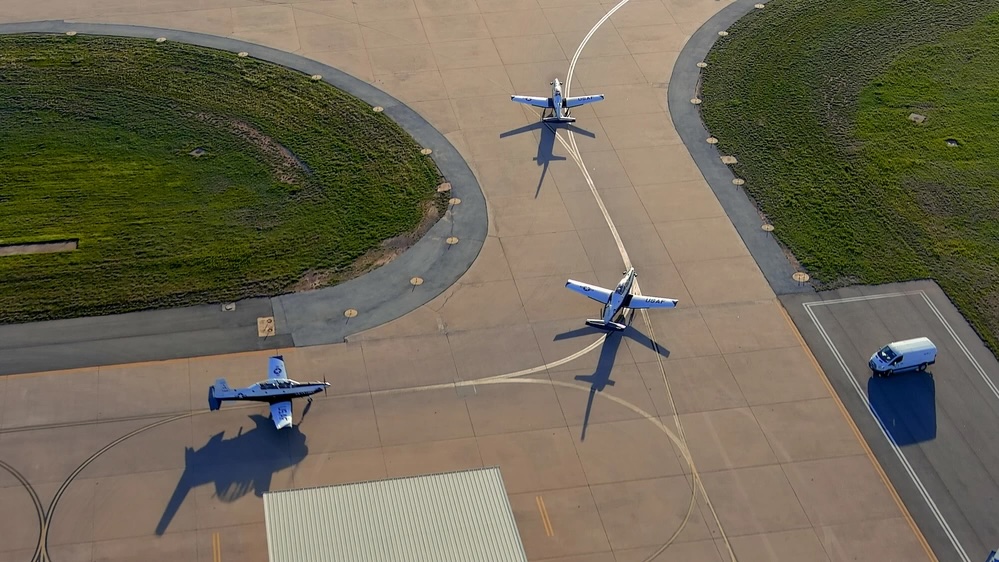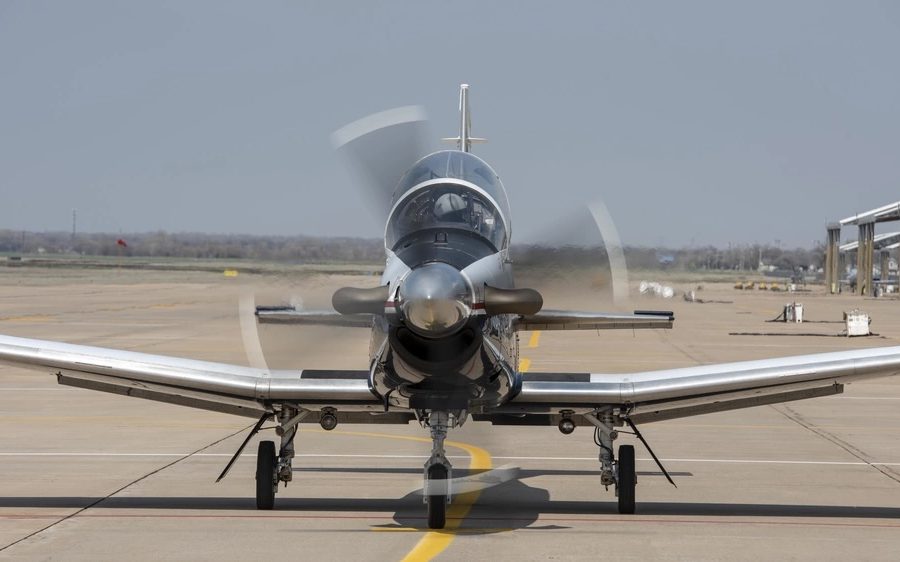Editor’s Note: This story has been updated with information identifying the pilot.
An Air Force instructor pilot died early in the morning on May 14 from injuries sustained when the pilot’s T-6A Texan II training plane ejection seat activated during ground operations the day before, the 82nd Training Wing at Sheppard Air Force Base, Texas, announced in a press release.
“An investigation into the cause of the incident is underway,” wrote the wing, which later identified the pilot as Capt. John Robertson, a member of the 80th Operations Support Squadron.
“This is a devastating loss for Captain Robertson’s family and loved ones, and for the entire 80th Flying Training Wing,” Col. Mitchell J. Cok, the acting wing commander, said in a statement. “Captain Robertson was a highly valued Airman and instructor pilot. Our deepest condolences go with all who knew and loved him.”
Cok thanked first responders on the base, who “immediately provided life-sustaining care” and “allowed time for Captain Robertson’s family to be at his side when he passed.”
The 82nd is the host unit at Sheppard, while the 80th Flying Training Wing runs the Euro-NATO Joint Jet Pilot Training (ENJJPT) Program, a multinational school where students and instructors from across NATO learn and teach the basics of flying.
The wing flies the T-6, a two-seat propeller plane often used for basic aviation lessons in undergraduate pilot training, and the T-38, a two-seat jet typically used to teach future fighter and bomber pilots. Two years ago, 76 T-6s and 203 T-38s were grounded due to concerns about potentially faulty ejection seat parts. The grounding affected 40 percent of the T-38 fleet and 15 percent of the T-6 fleet.
At the time, Air Force Materiel Command said the explosive cartridges used in the ejection seats may suffer from “quality defects.” Each seat has multiple and redundant explosive cartridges. Two months after the stand-down, the Air Force had found no faulty cartridges on any of the T-6s, Breaking Defense reported at the time.
“Our primary concern is the safety of our Airmen and it is imperative that they have confidence in our equipment,” Maj. Gen. Craig Wills, then-head of the 19th Air Force, said at the time.

The average age of the T-6 fleet is 17 years old, according to 2023 data. While spry compared to the T-38’s average age of about 56 years, senior Air Force leaders say the age of trainer aircraft is slowing down pilot production.
“From the time they [student pilots] are commissioned—because of the challenges we’re having with T-6 and T-38—we have a little bit of a backup. It can be as many as four years,” then-Vice Chief of Staff Gen. David W. Allvin told the House Armed Services Committee in 2023. “So almost an 18 month- to 24 month-wait just to get into pilot training.”
A T-6 made an emergency “belly flop” landing at Joint Base San Antonio-Randolph, Texas, on April 3 after its pilot declared an in-flight emergency. No one was injured in the incident.
This is a developing story and will be updated as more details become available.
